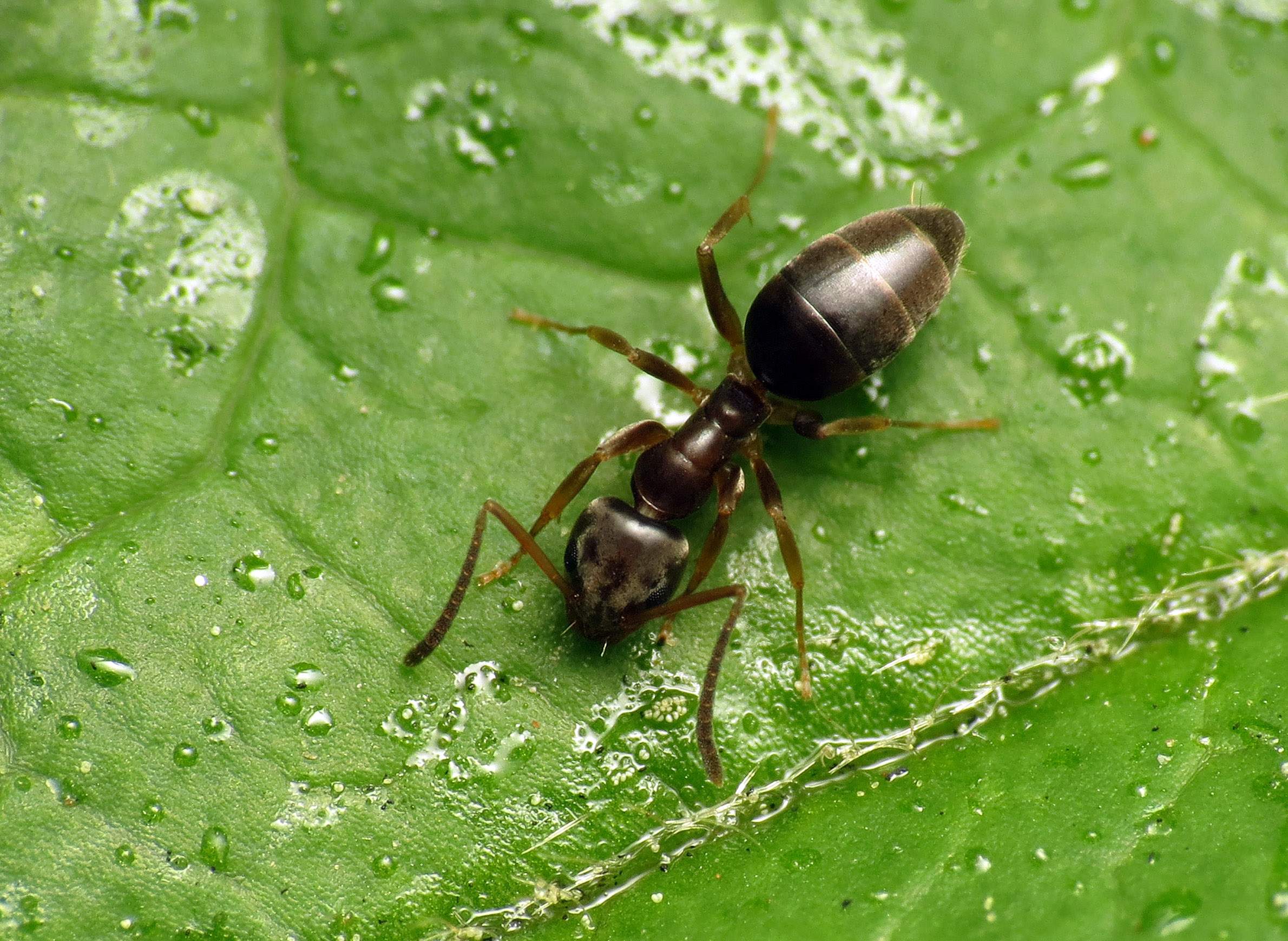Seeing a trail of tiny black ants marching through your kitchen or bathroom can be incredibly annoying. These uninvited guests are likely black garden ants that have found their way inside. While a nuisance black garden ants don’t pose any major health risks. But you’ll still want to get rid of them and prevent future infestations.
In this article, we’ll cover what attracts black garden ants, how to identify them, tips for eliminating indoor colonies, and preventing them from invading again.
What Attracts Black Garden Ants Inside?
Black garden ants (Lasius niger), also called common black ants, typically nest outdoors but will forage inside homes for food. A few key things attract them inside:
- Sugary foods – Spilled juice, forgotten candy, uncovered sugar bowl, etc. appeal to their sweet tooth.
- Greasy or protein-rich foods – Meat, cheeses, nuts, and oils. Also pet food bowls left out.
- Standing water – Leaky sinks or pipes provide drinking water.
- Small cracks – Entry points around windows, doors,utility pipes, etc.
Once one ant scout finds a food source, it leaves a pheromone trail for other ants to follow into your home. So removing any attractions and sealing up cracks is key to keeping black garden ants out.
Identifying Black Garden Ants
Before treating an ant problem, it’s important to identify the species. Here are some ways to recognize black garden ants:
- Small size – Workers are only 2 to 5 mm long, about 1⁄8-inch. Queens reach 6 to 7 mm.
- Blackish-brown color – Body ranging from black to dark brown. Legs may be lighter brown.
- Heart-shaped head – With antennae that have a bent elbow in the middle.
- Single petiole node – The one node between thorax and abdomen resembles a scale when viewed from side.
- No stinger – Black garden ants don’t have a stinger for defense.
Other common household ants like carpenter ants and pharaoh ants lack some of these identifying traits. Properly identifying black garden ants ensures using proper control methods.
Eliminating an Indoor Black Garden Ant Colony
If you spot more than a few stray ants now and then, you likely have an indoor colony to eradicate. Here are effective approaches:
- Find and eliminate food sources – Clean up any sugars, grease, or pet food attracting ants. Store food in sealed containers.
- Seal cracks and entry points – Caulk around plumbing, windows, doors, etc. where you see ants entering.
- Borax bait traps – Borax mixes with sugar water for ants to consume and bring back to the colony.
- Essential oil sprays – Peppermint, eucalyptus, tea tree oils disrupt pheromone trails and deter ants.
- Chalk barrier – Chalk dust across entry points deters ants from crossing due to abrasiveness.
Be patient as eliminating the entire colony can take weeks. Avoid stomping on ants as it may scatter them. Combining methods leads to the best control.
Preventing Future Black Garden Ant Invasions
Getting rid of one black garden ant colony doesn’t guarantee they won’t return in the future. Make your home as unattractive as possible to ants with these deterrents:
- Regularly clean floors and countertops – Don’t give ants even a crumb to feed on.
- Store food in airtight containers – Including pet food. Never leave dishes out overnight.
- Fix plumbing leaks – Repair any standing water sources ants use.
- Trim vegetation touching house – Keeps ants from branching to your home.
- Apply sticky barrier strips – Placed around potential entry points before ants arrive.
- Use insecticide perimeter treatment – Products like bifenthrin spray create a repellent border.
- Plug holes with sealant – Caulk cracks inside and out that allow ants entry.
With diligence, you can keep pesky black garden ants from marching where they’re not welcome. Inspect for new cracks or food sources after each colony you eliminate. A clean home and sealed exterior will discourage ants from moving in. Enjoy your ant-free living space!
When Black Garden Ants Become a Nuisance
There are some bad things about black garden ants and other types of ants, just like there are some good things. You may not be able to tell the difference between helpful black garden ants and other ants.
There is a black ant called a carpenter ant that eats wood and can do a lot of damage to wooden things like homes, sheds, garden boxes, and fences. They do little to no damage to garden plants, however.
The SECRET to ELIMINATE LITTLE BLACK ANTS with EASE
FAQ
How to get rid of black garden ants in house?
Why do I have garden ants in my house?
What does it mean if you see black ants in your house?
Why am I getting small black ants in my house?

